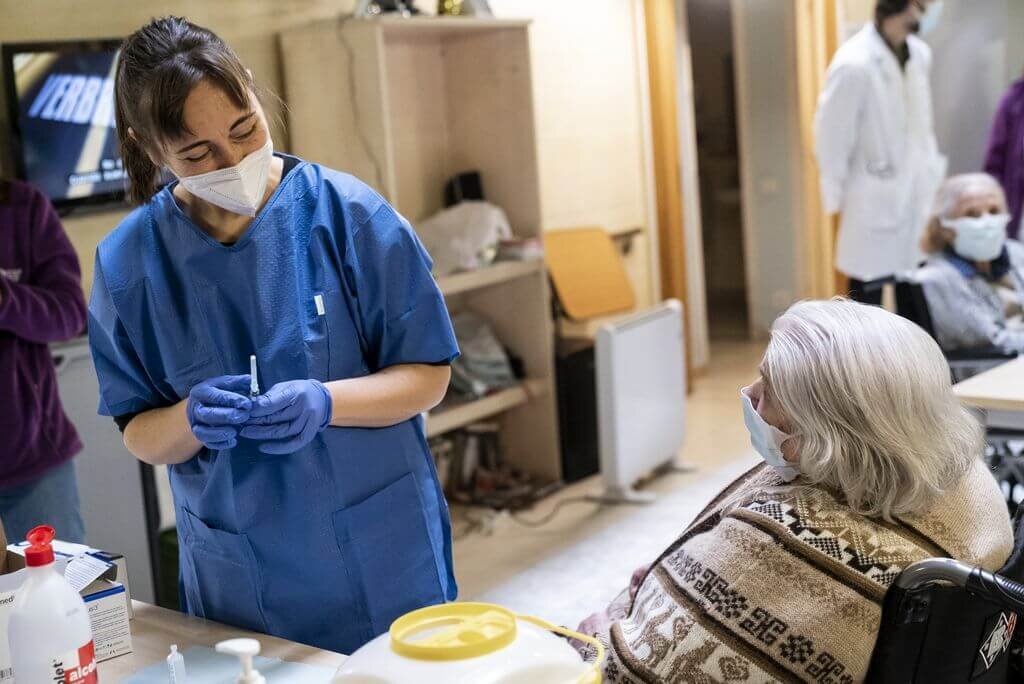The level of protection from severe symptoms, hospitalization, and death is the most significant criterion of a vaccine’s efficacy.
A little more than a year after the beginning of the pandemic, a new COVID-19 variant has emerged. For many, the general feeling is that of having returned to the starting point. Despite the global effort to produce and distribute vaccines, the infection range does not seem to diminish; A new wave with a different variant is expected this month worldwide.
There are two sides to this conversation: those who question and dismiss the effectiveness of preventive measures and vaccines and those who blame the pandemic on people who do not attend the sanitary protocols and are unvaccinated. Who is right? If this is the first question we ask ourselves, we should consider approaching the subject differently. The first question should be, what do we need to know?
About the efficacy of vaccines
The main argument about cases where COVID-19 occurs among the unvaccinated is that it “doesn’t work.” Throughout the months in which thousands of people have tested positive for Covid despite having received the vaccine, social media has been flooded with cybernauts sharing testimony that the vaccine did not do its job. However, are we clear about the purpose of the vaccine?
Two numbers are crucial in defining whether or not the vaccine serves its purpose: the efficacy rate and the level of protection from severe symptoms, intensive care hospitalization, and death.
The efficacy rate indicates the percentage of protection against contagion. This number is not a measure of assurance that you will not contract the disease. A higher efficacy rate of one vaccine over another does not mean that it is automatically a better vaccine or that a lower rate suggests that the shot on the bottom scale is deficient or unsafe. The time window and the geographic testing origin significantly influence the final assigned percentage.
For example, Pfizer and Moderna, with 95% and 94% efficacy, respectively, were tested exclusively in the United States last summer, when prevention measures and confinements were at a global high. While also starting in the summer, Johnson & Johnson’s testing extended into the fall and covered other countries, mainly South Africa and Brazil. The participants’ exposure to the virus increased during this testing period, while variants in these regions already existed.
The circumstances in which Johnson & Johnson tested undoubtedly impacted their final efficacy rate. It would be a mistake to assume this is an unsafe or useless vaccine; it was tested in a more complicated environment. If the company had tested under the same circumstances as Pfizer or Moderna, perhaps it would have attained higher numbers than theirs, instead of lower. Regardless, this is not the best number to decide whether or not to get vaccinated or which vaccine. Avoiding hospitalization and death from contagion is the priority of any vaccine. If we move the meter to that criterion, the numbers are much more encouraging. All vaccines reduce COVID-19 mortality and intensive care admissions by 99.9%.
About the timing and development of vaccines
One present concern among people reluctant to become vaccinated is the expeditious time they became available to the public. Many believe that they could be part of a test group and not be receiving effective prevention. This suspicion of time should be directed by a question: Do we know how long it takes to produce a reliable vaccine?
The first vaccine against Spanish influenza was authorized in 1945, twenty-seven years after this outbreak that started the first major pandemic of respiratory infections in the modern world. Today we know that four types of influenza exist and that seasonal changes produce new strains continuously, so vaccines also change every year to adapt.
All of this is the product of decades of continuing research; thus, when specialists in the scientific community began developing a vaccine against COVID-19, they were not starting from scratch. Coronaviruses have long been studied by those responsible for medical solutions. Thanks to all this epistemic background, the swine flu vaccine, the most recent pandemic before this one, took less than five months.
About the side effects of vaccines
The fear of adverse reactions to the vaccine primarily motivated people’s reluctance to receive their dose. However, symptoms such as headaches, fever, allergy, fatigue and other ailments as a deterrent to COVID-19 vaccination pale in comparison to the lung inflammation, severe fever, difficulty breathing, the need for intensive care, intubation, cardiac complications and death caused by the virus. The latter are compelling reasons for the vaccine. The side effects of vaccines, in most cases, are positive things. To put it simply, the COVID-19 vaccine (and all other vaccines) work like this:
This is such a cute COVID vaccine infomercial.pic.twitter.com/JDyjEa9WHe
— The Phantom Geek (@phntmgeek) June 22, 2021
The discomforts we feel after the injection do not mean that we are sick. On the contrary, they are the signs that the immune system is working to combat the weakened or dead pathogens comprising the vaccine, which cannot harm us. They help our immune system learn how to fight an actual COVID-19 infection. The vaccine provides a 65% to 97% decrease in the probability of contagion and 99.9% protection against symptoms leading to intensive care hospitalization and death.
However, some people have underlying conditions compromising their immune systems. In these particular cases, the vaccine would not negatively impact them, but its efficacy could be reduced due to a weak response from the body.
Developing thrombosis is another main concern of those lacking confidence in vaccination. This possibility is real but minimal. In Spain, for example, there were 2 to 3 cases among every million people vaccinated, reported Juan Carlos Reverter, President of the Spanish Society of Thrombosis and Hemostasis (SETH), in an interview with La Vanguardia. To put this number in perspective, consider that thrombosis can also present as a symptom of COVID-19. “Of the total patients admitted to the hospital, 20% suffer from thrombosis. The percentage approaches 40% in the ICUs,” explained the Chief of the Hemotherapy and Hemostasis Service at the Hospital Clínic of Barcelona. In Spain, 190 of every 10,000 patients with COVID-19 currently die; in the United States, 250 of 27,190; in Mexico, 371 of 6,543; in the United Kingdom, 174 of 30,838. The possibility of presenting thrombosis as a symptom of COVID-19 is a thousand times greater than developing it as a side effect of the vaccine.
About the right and responsibility to decide
Beyond the doubts and fears of thousands of people who do not consider the vaccine a viable option is the decision to receive it or not. It is a matter of free choice and personal responsibility; both go hand in hand. Freedom is the power to act without external control, according to our will and what we consider our best interests. Personal responsibility means carefully considering our actions, considering how they may affect us or others in the future.
In a health crisis like the one we have been facing for more than a year, any exercise of freedom must go through the filter of questioning how our decisions would impact other people who are equally or more susceptible to contracting the virus and/or presenting severe symptoms or dying.
Former California governor and actor Arnold Schwarzenegger offers a bit extreme but simple example of the ethical implications of deciding not to get vaccinated due to misinformation or having the perception that our freedoms are being violated by the insistent call for preventive measures and protocols: “It’s no different than traffic lights. We put traffic lights at intersections so that no one kills another person by accident. You can’t say, ‘Nobody’s going to tell me I have to stop here. I’m going to go through the light.’ This is how you kill someone because of your actions,” the Republican expressed emphatically in a conversation with Colonel and author Alex Vindman, moderated by journalist Bianna Golodryga. He also reiterated the need to trust experts and believes that the scientific community’s years of research and knowledge represent the best approach to solutions.
The decision to get vaccinated continues to be a personal choice in most of the world. However, this scenario is changing rapidly given the impossibility of eradicating the pandemic before more waves and variants emerge. Regardless of the doubts or uncertainties you may have about the vaccine, it is essential to consult with your trusted doctor. The best answer for you will always come from someone who knows your medical history and can generate personalized recommendations either for the option of a first dose or a booster. For more information on educational resources and best practices against COVID-19, visit the dedicated section of the Observatory of the Institute for Future of Education of Tec de Monterrey.
Translation by Daniel Wetta.
Disclaimer: This is an Op-ed article. The viewpoints expressed in this article are the author’s own and do not necessarily reflect the opinions, viewpoints, and official policies of Tecnológico de Monterrey.
This article from Observatory of the Institute for the Future of Education may be shared under the terms of the license CC BY-NC-SA 4.0 
)
)


)